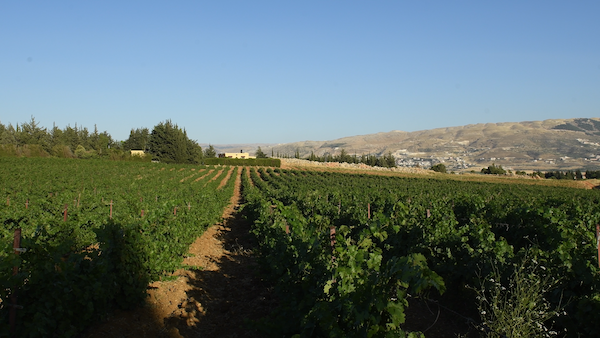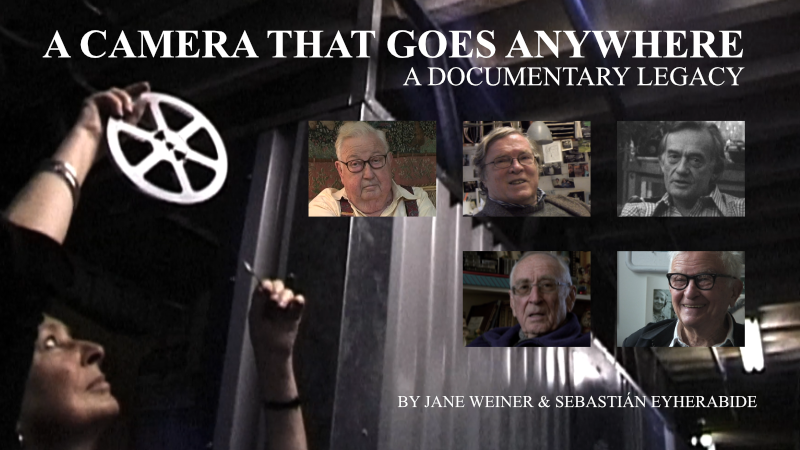
A Camera That Goes Anywhere
The inside story of five pioneers who revolutionized documentary filmmaking.
Watch TrailerAbout the Film
A CAMERA THAT GOES ANYWHERE reveals the untold story of how five visionary filmmakers—Richard Leacock, D.A. Pennebaker, Robert Drew, Terence Macartney-Filgate, and Albert Maysles—came together in the late 1950s to create a revolutionary "new cinema language" that would transform documentary filmmaking forever.
The film traces their groundbreaking collaboration on "PRIMARY" (1960), which captured the Wisconsin Democratic primary battle between John F. Kennedy and Hubert Humphrey using innovative handheld cameras synchronized with portable sound recorders. Their five-day shoot launched American cinéma vérité, but the journey from conception to recognition was far from smooth—initially rejected by American networks, the film found acclaim in France through Henri Langlois at the Cinémathèque française.
Director Jane Weiner draws from 35 years of intimate conversations with these cinema pioneers, offering unprecedented access to their creative process and personal reflections. Her film, originally titled “La caméra passe-partout”, comes from Richard Leacock's 1959 article in Cahiers du Cinema, where he first articulated his aesthetic vision for this new form of observational filmmaking.
The documentary not only chronicles history but challenges viewers to reconsider their understanding of it. In a remarkable footnote to the story, a rare 16mm print of Leacock's shortened 26-minute version was discovered in Paris archives in 2010 and beautifully restored to 4K digital, bringing this pivotal work full circle.
The Importance of This Film
A CAMERA THAT GOES ANYWHERE captures a defining moment in cinema history when documentary filmmaking broke free from its scripted constraints and entered the real world. The innovations developed by these five filmmakers—portable sync-sound equipment, handheld cameras, and observational techniques—didn't just influence documentaries; they fundamentally changed how all films could be made.
The film preserves firsthand accounts from the creators of cinéma vérité at a crucial historical moment. These conversations, spanning over three decades, offer irreplaceable insights into the creative and technical challenges that shaped modern documentary practice. From Barbara Kopple (Harlan County, USA), Frederick Marx (Hoop Dreams), Agnès Varda (The Gleaners and I), to the Dardenne brothers (Rosetta), countless filmmakers today employ techniques pioneered by this group
By documenting the initial rejection and eventual recognition of "PRIMARY," the film also tells the broader story of artistic innovation—how revolutionary ideas often face resistance before transforming their medium. The discovery and restoration of Leacock's version fifty years later demonstrates cinema's ongoing dialogue between past and present, technology and artistry.
For contemporary filmmakers working with digital tools that realize the portability dreams of these pioneers, the documentary serves as both historical education and creative inspiration, showing how technical innovation serves storytelling and how persistence in artistic vision can reshape an entire art form.
Screenings
Cinéma du Réel - Paris (2011) Work-in-Progress screening
Cinequest Film Festival - San Jose, CA World Premiere (2012)
Aired for 5 years on Ciné + (Canal Plus), France (La Caméra Passe Partout)
Film Crew & Director
Film Crew
- Produced and Directed by
- Jane Weiner
- Written by
- Jane Weiner & Sebastián Eyherabide with Paule Darmon & Sharon Hammou
- Camera & Audio
- Boris Carreté, Jeff Kreines, Jane Weiner, Pam Wise
- Additional Camera & Audio
- Sebastián Eyherabide, Sharon Hammou, Valérie Lalonde, Terry Macartney-Filgate, Al Mecklenberg, Christine Pihl, David Rivello
- Editing
- Sebastián Eyherabide, Pierre Sainteny
- Color correction
- Jean-Marc Dufour
- Studio recording, opening music, audio effects & mix
- Tito De Pinho, Férdéric Ullmann
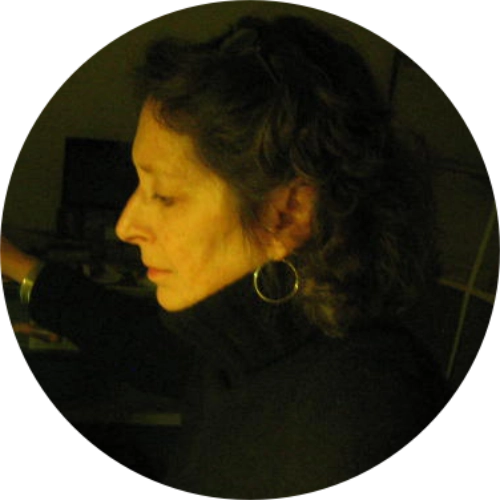
Jane Weiner
Filmmaker
Jane Weiner is an award-winning documentary filmmaker who began her career in 1972 when she started filming her mentor, Richard Leacock, at MIT. After several years freelancing as assistant editor on both 35mm fiction and 16mm documentaries, she became the supervising editor of over 100 documentaries for the National Film Board of Canada and went on to organize international co-productions with broadcasters including the BBC, Arte-Germany, and Swedish Television.
Since 1993, dividing her time between the USA and France, Weiner continues to write, shoot, and direct films worldwide. She has taught at the New School and Syracuse University's Newhouse School, led workshops across four continents, and served on international film festival juries.
Her work has earned multiple Emmy Awards, Sundance recognition, a Peabody Award, Prix Italia, and numerous international honors including prizes from Berlin, UNESCO, and Vision du Réel festivals.
Download Jane Weiner's full bio and filmographyBehind the Scenes
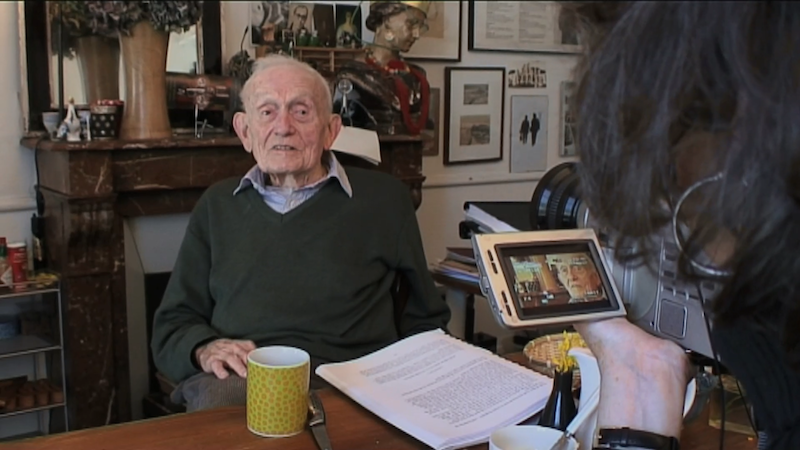
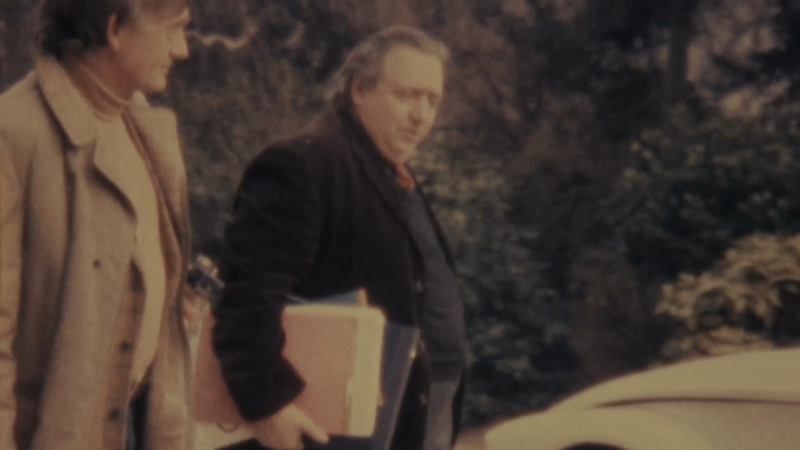
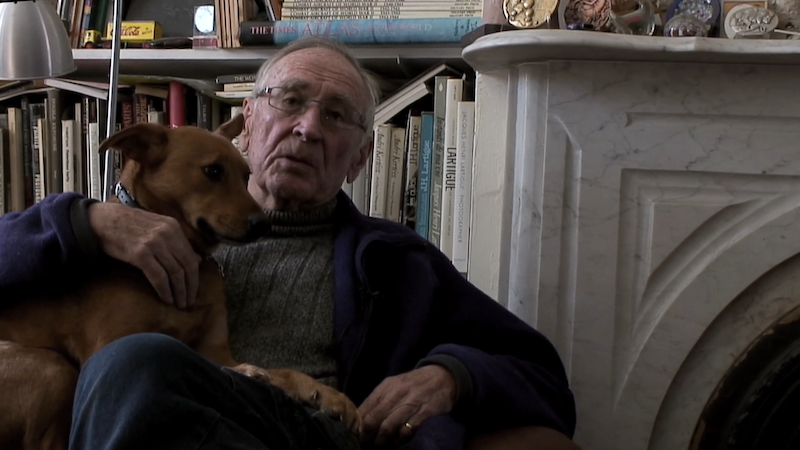
Screening Requests
Bring this story to your audience.
A Camera That Goes Anywhere is available for screenings, community events, and licensing. Whether you're a curator, educator, or festival programmer—we'd love to help you share it.
Request Screening Info
